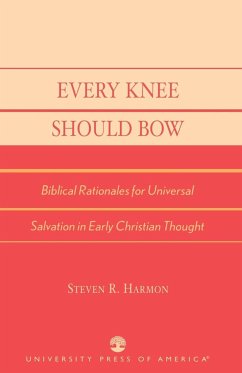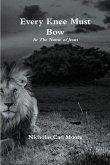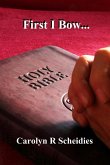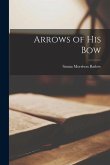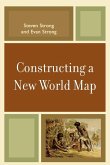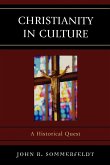In Every Knee Should Bow, Steven Harmon explores the manner in which Clement of Alexandria (ca. 160-215 C.E.), Origen (ca. 185-ca. 251 C.E.), and Gregory of Nyssa (331/340-ca. 395 C.E.) appealed to Scripture in developing rationales for their concepts of apokatastasis, the hope that all rational creatures will ultimately be reconciled to God. Harmon argues that these patristic universalists maintained their hope for "a wideness in God's mercy" primarily because they believed this hope was the most coherent reading of the biblical story.
Hinweis: Dieser Artikel kann nur an eine deutsche Lieferadresse ausgeliefert werden.
Hinweis: Dieser Artikel kann nur an eine deutsche Lieferadresse ausgeliefert werden.
Steven R. Harmon's Every Knee Should Bow (revised dissertation, Southwestern Seminary, 1997) makes for a good read. It is concise and clearly written... I will find the book (Every Knee Should Bow) a valuable resource for the analysis of this issue in my class on the history of Christian thought. It will provide a ready reference to key biblical texts, as well as examples of how selected early Christian thinkers employed these texts. It is always enjoyable to lead students to see that ideas they consider radical (such as universal restoration) are not really new. -- J. Bradley Chance, William Jewell College Journal Of The Nabpr This book is a joy to read, both because its subject is relevant to the faith and life of the church today and because Harmon has provided so many insights into early Christian universalism, a position he respects though he does not adopt it. -- Fisher Humphreys, Beeson Divinity School, Samford University, Alabama Review and Expositor This book is a joy to read, both because its subject is relevant to the faith and life of the church today and because Harmon has provided so many insights into early Christian universalism, a position he respects though he does not adopt it. -- Fisher Humphreys, Beeson Divinity School, Samford University, Alabama Review and Expositor

